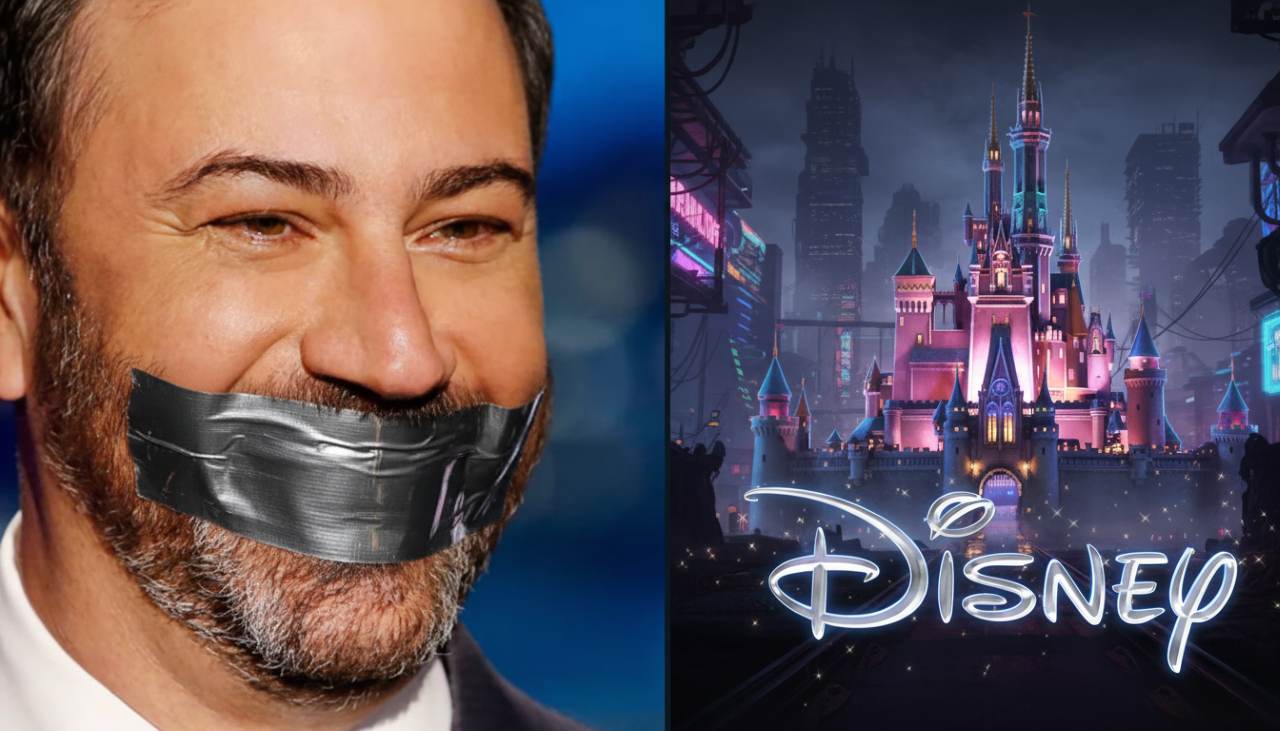A Sudden Market Dive With Political Strings Attached

Disney, the company that can spin mice into billion-dollar empires, is now reeling from a $3.87 billion market-value drop seemingly overnight. But pinning that plunge solely on Jimmy Kimmel misses the plot.
The losses are less about an edgy late-night joke and more about how political power, corporate cowardice, and America’s cracked relationship with free speech intersect at the corner of Hollywood and Washington.
ABC, owned by Disney, suspended Jimmy Kimmel Live! after the comedian implied during a monologue that the suspect who killed conservative activist Charlie Kirk had MAGA ties. Some affiliates, led by broadcast giant Nexstar—currently eyeing a merger subject to government approval—were quick to preempt the show. And, lo and behold, FCC Commissioner Brendan Carr, a Trump appointee, piled on with vague threats to Disney’s broadcast license. Never mind that the FCC has no such authority. The political message was clear: fall in line, or pay a price.
How a Joke Became a Corporate Crisis
The decision didn’t unfold quietly. Instead, Disney’s move to sideline Kimmel triggered a cultural firestorm. From hashtags like #BoycottDisney to screenshots of Disney+ cancellations flooding social feeds, the backlash spread fast. Major celebrities—Barack Obama, Stephen Colbert, Wil Wheaton—rushed to Kimmel’s defense. Within twenty-four hours, Culture Base and other trackers reported Disney’s stock market value had shed nearly $3.87 billion.
But here’s the rub: that drop wasn’t “because of Kimmel.” It was because Disney blinked first. Investors hate volatility, and few things scream instability louder than a global company caving under partisan rage.
Corporate America and the New Free Speech Minefield
This saga is the latest in a disturbing trend: corporations caught in the crossfire of America’s ideological cold war. We’ve seen it with Bud Light, Target, and even airline CEOs testifying before Congress about “wokeness.” Now it’s Disney’s turn—already a favorite Trump target after years of clashes over Florida politics and LGBTQ+ inclusion in films.
By suspending Kimmel, Disney sent a signal: political pressure works. Broadcasting giants like Nexstar and Sinclair didn’t just flex muscle—they proved that leaning on corporations in the name of “patriotism” or “decency” can bend billion-dollar entities into compliance. That’s not just bad for shareholders; it’s corrosive for democracy. Hollywood becomes another arm of partisan power rather than a cultural counterweight.
Wall Street’s Verdict
The financial markets were merciless. Deadline reported Disney’s stock price dropped between 3.5% and 7% on the news, hitting lows not seen in months. Bank analysts tend to overlook the substance of cultural movements, but they do react to consumer boycotts, subscriber churn, and looming affiliate battles. That explains why Disney lost billions on paper after a single night’s news cycle.
For context: $3.87 billion for Disney is not existential—it’s about the budget of a new Pixar trilogy or one fiscal quarter’s parks revenue. But symbolically, it’s devastating. It broadcasts to shareholders that Disney doesn’t control the narrative around its own content, affiliates and politicians do.
A Symptom of Bigger Decay
What’s happening to Disney is not just another “culture war” dust-up. It’s about the weaponization of regulatory threats. When an FCC commissioner brandishes licensing power they don’t possess, and companies still fold in fear, America’s core promise of free expression looks threadbare. Today it’s Jimmy Kimmel; tomorrow it could be The View, Last Week Tonight, or any program daring to critique political elites.
Adding to the irony? Kimmel’s contract ends in 2026. Initial reports suggest Disney was already debating whether to extend it. Instead of acting from a place of strength, Disney looked cornered. Free speech wasn’t defended; it was bartered, and Wall Street punished them instantly.
The Global Angle
Internationally, this matters too. When one of the most powerful entertainment conglomerates in the world wobbles at the hint of government retribution, it sets a precedent. Other democracies—India, Hungary, Turkey—have already seen private broadcasters pressured, canceled, or worse for political comedy. The United States, by exporting Disney’s crisis worldwide, risks affirming an authoritarian playbook: thin-skinned leaders can bend cultural institutions to their will without firing a single shot.
What Happens Next
Disney’s options aren’t great. Reinstate Kimmel and they risk losing conservative affiliates and reopening regulatory fights. Keep him sidelined and they hemorrhage liberal subscribers and creative partners. Either way, their reputation as a media empire shaped by storytelling, not censorship, is already cracked.
Mark Ruffalo’s blunt warning—“Disney does not want to be the ones that broke America”—captures the stakes better than any analyst report could. This isn’t just about one late-night host. It’s about whether Disney, and by extension corporate America, will stand up for the values they market on screen: dissent, freedom, and the power of imagination.
For now, Wall Street has delivered its verdict: free speech—or at least the protection of it—is good business. Capitulation is not.
